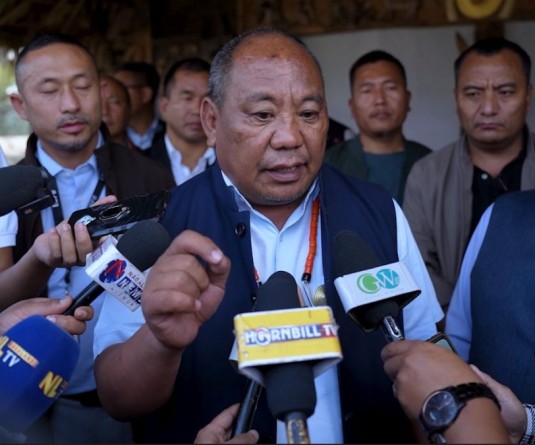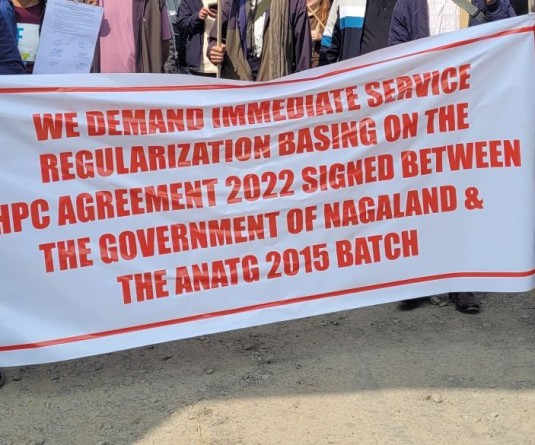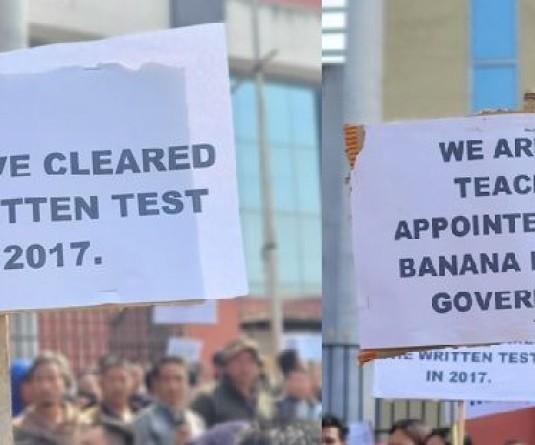
Urban unions object to women's reservation and municipal taxation
DIMAPUR, MARCH 10 (MExN): Three organizations have said that they would not allow or participate in the Nagaland ULB elections set to be held on May 16, unless the government amends parts of the Nagaland Municipal Act, 2001 with regard to women’s reservation; and taxation on land and buildings.
The Association of Kohima Municipal Ward Panchayat (AKMWP), All Ward Union Mokokchung Town (AWUMT), and Dimapur Urban Council Chairmen Federation (DUCCF), have written to the Nagaland Chief Minister demanding amendment/ review of the Act with specific references to certain provisions and sections “that infringes upon Article 371-A of the Constitution of India.”
The representation was signed by Thejao Sekhose, President, AKMWP; Zasivikho Zakiesato, President, DUCCF; and Limanungsang, President, AWUMT.
The three organizations called for deleting Section 120 (1) (a) of the Act referring to “A tax on land and building,” and those provisions relating to ownership of land and building. They stated that the Naga people are absolute owners of their land, and said that the protections under Article 371-A cover the entire State of Nagaland without any classification on rural and urban areas.
They observed that the 3rd amendment of the Nagaland Municipal Act, 2001 in 2016 with regard to “tax on land and building” as mentioned in Section 120(4) & (5), Section 121 (1) (a), Section 143, 144, 145 and 182 (d) appears to have been quoted with the word ‘omission’ or ‘omitted.’ The ULBs termed this as ambiguous and a ‘cryptic proposition.’ They therefore demanded that the word ‘omission’ and ‘omitted’ be replaced with the word ‘deleted.’
Further, the organizations called for formulation of a “policy for women nominees” instead of the 33% reservation of ULB seats for women. It argued that Article 371-A provides that no Act of Parliament would apply unless the NLA by resolution decides in respect of Naga customary law and procedures; and that “Naga customary law does not allow women to equally participate in the political and socio-economic decision making.” The JCC also mentioned how in 2017, reservation of one third seats for women in the Municipal Elections was protested by various tribal bodies and organizations spearheaded by the Joint Coordination Committee (JCC).
It further questioned “whether it is for the legislature to decide what constitutes social reform.” “In a democracy governed by rule of law, gradual progressive change should be brought about. Making law or amendment to a law is a slow process and the legislature attempts to remedy where the need is felt most acute. It would therefore be inexpedient and incorrect to think that all laws have to be made uniformly applicable to all people at the same time,” the organisations argued.
They stated that the phrase “…unless the Legislative Assembly of Nagaland by resolution so decides” in Article 271-A has “cast a special responsibility upon the legislators of the State in making policy and decisions that would not offend the customary rights of the people nor infringe other fundamental provisions of the Constitution.” The organizations asked the policy makers and administrators to be vigilant of the social fabric of society in implementing any law or policy.
The organizations suggested that the government activate the committee constituted in 2017 to amend/review the Act with specific reference to the “tax on land and building” and the 33% reservation of women. If the Act is not rectified, they cautioned that this would set a precedent “which will be detrimental to the rights of the Naga people as enshrined in the Indian Constitution.”
Meanwhile, they claimed that “introducing women’s political culture which was never there in traditional Naga society widens collective concerns over Article 371-A.” Here again, the three organizations brought up the violence that accompanied the protests in 2017.
“For the Nagas, Article 371-A is related to both territory and the people; for Nagas the land and all resources belong to the people. All resources include people and women and accordingly, a law deciding on the political rights of the Naga women rest with the people,” they claimed.
They further asserted that Article 371-A is a right granted to the Naga people that protects Naga tribes from colonial as well as the Indian system of taxation. “If the Naga people pay tax to the government then it implies, that the land belongs to the government, whereas, for the Nagas the land belongs to the people,” they stated.
The three organizations further argued that if 15% tax is levied on the demarcated municipal area, “there will be many people who will be deprived and lose their land and building (as) they will not be able to pay taxes.” Further they stated that in Nagaland, a municipal area may not necessarily be an urban area since some municipal areas are underdeveloped and rural, and therefore cannot tax people.






